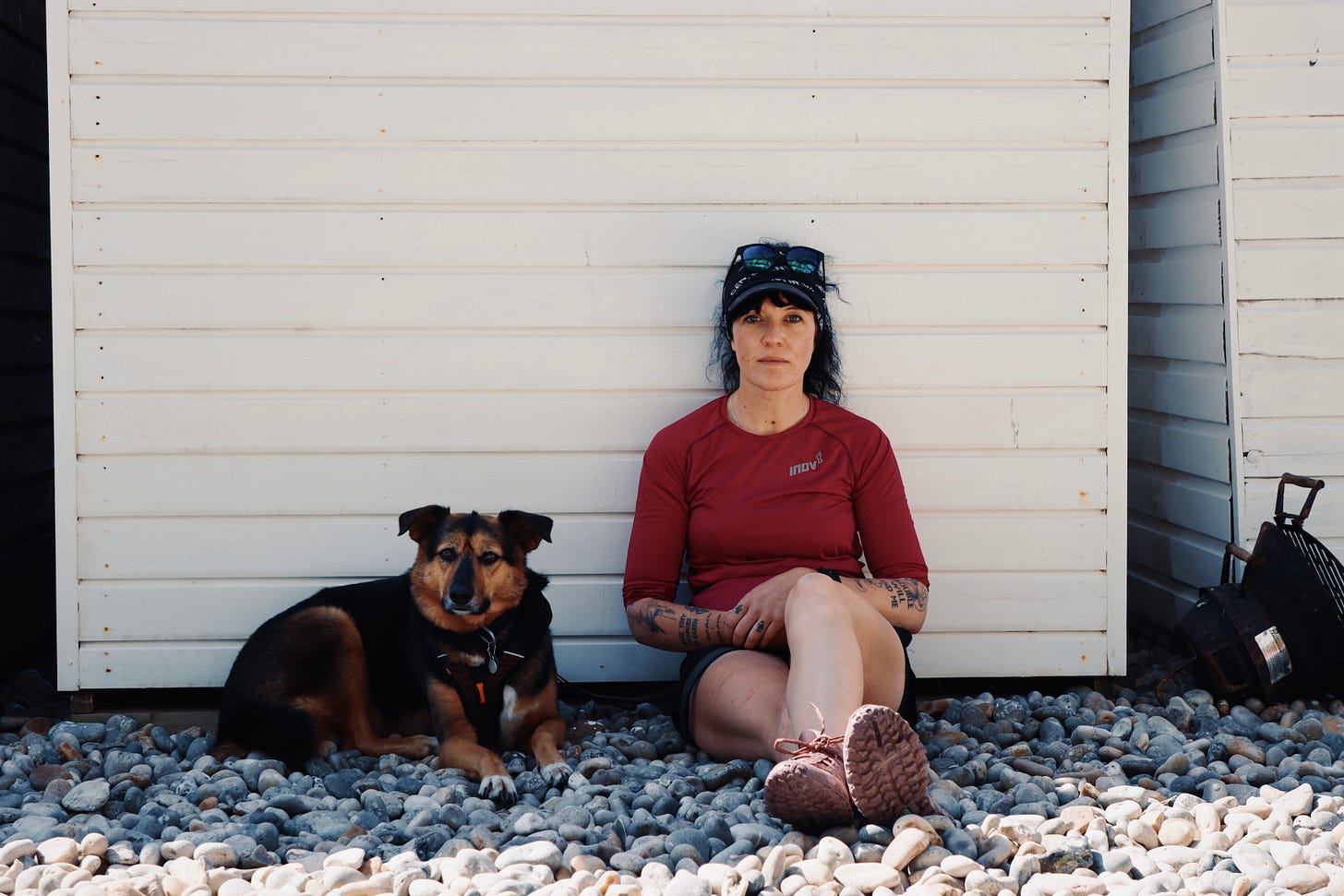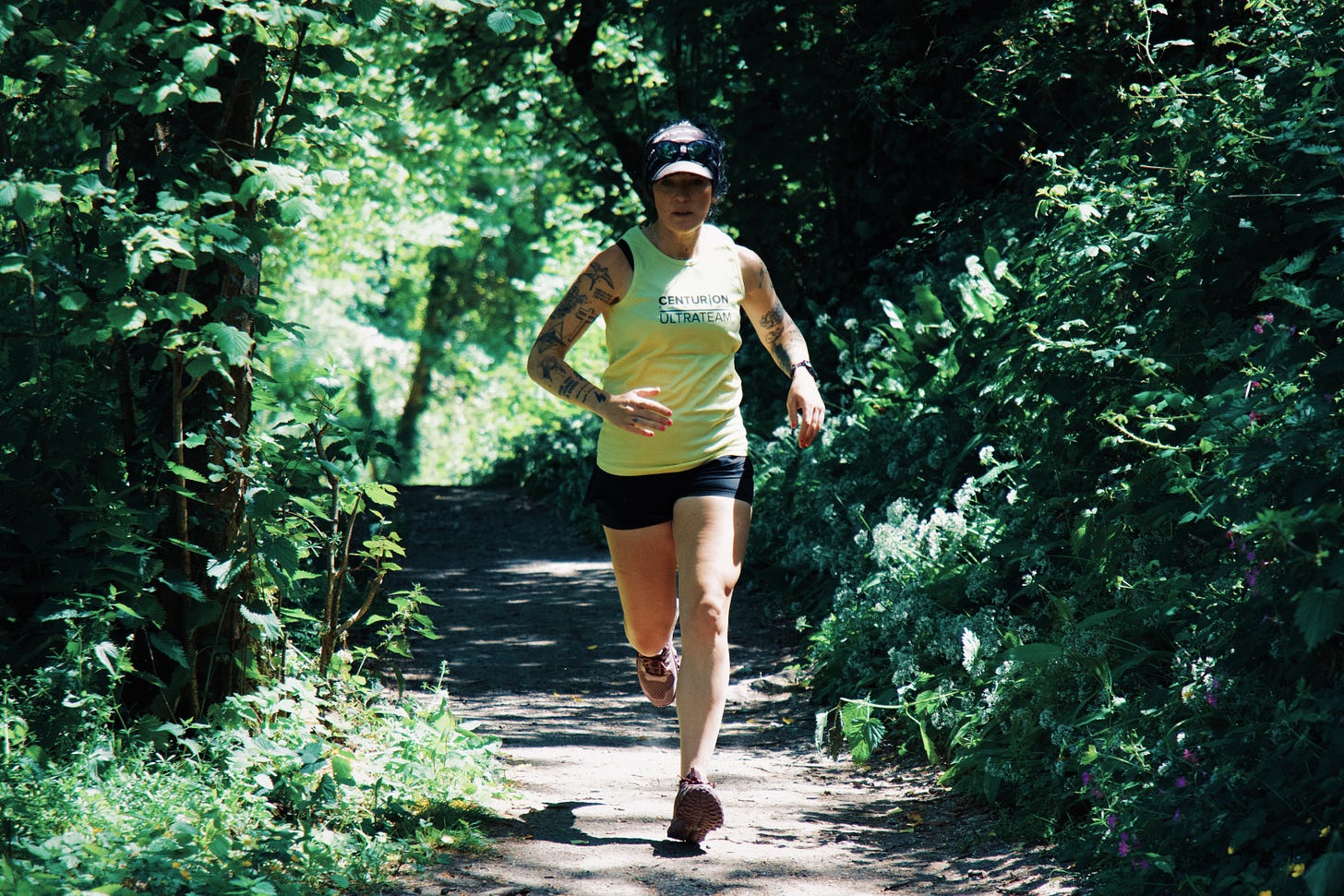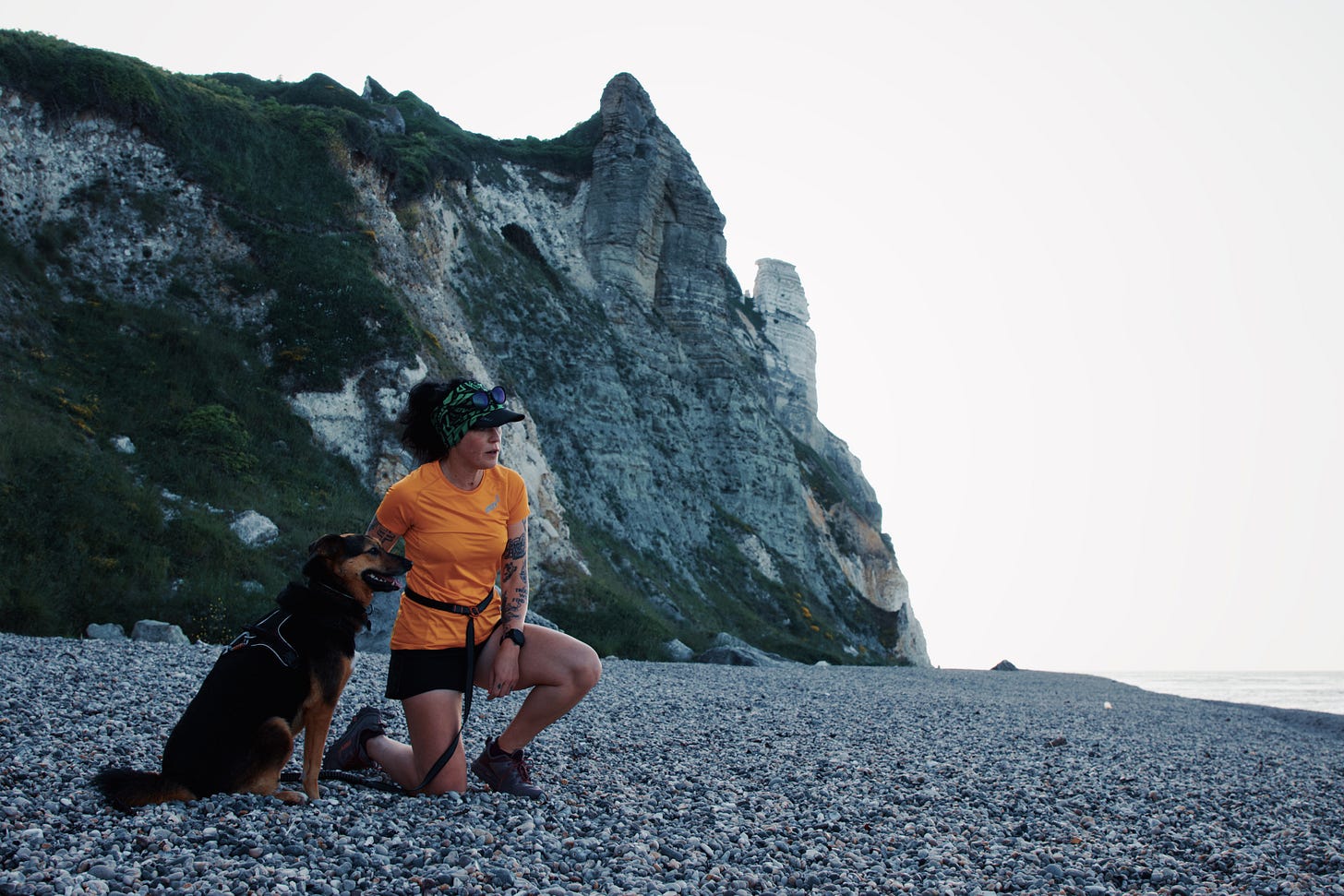Allie Bailey: The outdoors 'is not your therapy'
Allie Bailey on having a purpose, becoming an accidental role model and why the outdoors and running is not therapy. Plus, why aren't women sharing their wins?
Note: Contains references to suicide.
At 27 years old, Allie Bailey started running as a last-ditch coping mechanism to help manage her depression. Several people had told her that “running would fix your mental health.”
Back then, Bailey, a recovering alcoholic, took to the sport well and quickly progressed to marathons and ultra-marathons around the world, including running across the frozen Lake Khovsgol in Mongolia and the Namib Desert, to name just two epic bucket-list challenges.
Running would eventually become part of a lifestyle and career change, from her dream job in the music industry to a coach, but she was still hiding a deep secret. Bailey spent many of those years running – and drinking. In other interviews, she detailed how she would add a bottle of wine to her race fluids.
Sobriety would eventually come in 2021, and it’s only been in these last three years that Bailey, now 43, finally knows who she is, having found her purpose in helping other people get the best out of themselves. Part of that purpose is being a role model, albeit a reluctant one, as an example of what’s possible.
With the help of therapy, Bailey now knows that she’s highly principled with strongly held values – kindness, honesty and integrity. Yet living against those values was what formed part of the misery.
“I’ve only lived the way I am in the last three years, which is really sad isn't it? My whole adult life I've been pretending to be someone that I'm not, and now I'm 43 and I've only been able to be exactly the way that I am for three years.”
Now she delights in the small and ordinary parts of life – “I'm the sort of person that goes to a garden centre on Sundays and has cake and tea, and that's what I like doing,” she says, contentedly.

“My whole reason for doing what I do now is to help other people to realise that even if it feels really s---, there is hope that you can get well again. Whether that's with addiction, mental health or whether you've been sort of masking stuff for a long time, there is hope and you can come out the other side.”
She wrote the book There is No Wall because “when I was sick there was nowhere for me to go. I couldn't find a book that made me feel hopeful. So that made me think, that if I could write down what's happened to me, maybe that would help other people feel hopeful because when you are in that situation, there is no hope.
“I just want to be an example of what is possible because I didn't have an example. I [thought] I'm the only f---ing alcoholic ultra-runner, turns out I'm not.”
Did that surprise her? “No, because I see it in people all the time. When I was at those events where we would camp overnight and run the next day, I could see the people that were like me and we were all sort of slinking around in the shadows. Going from person to person having a drink, so it was never obvious what we were doing.
“I still see them now, but there's no point in saying to someone, ‘I think you're an alcoholic’ because it’s not your place to say that, and it very rarely comes from a place of love.”
Her background with addiction and role as a mindset and running coach sees her field messages from functioning alcoholics at all ability levels in endurance sports, confiding in her that they might have a problem. She says addiction is seen as a “massive, big shame hole, [but] how can it be wrong to be addicted to a substance that's highly addictive and is marketed at us to be normal? There's no shame in that.
“People are like, ‘I'm going to miss out.’ It's like but you are missing out by drinking. Do you understand? Drinking makes you miss out on so much stuff. Whereas societally we think the opposite.”
Bailey’s own story of addiction started in her late teens. “I realised alcohol could make me feel more confident and it can stop the [depressive] thoughts, but it didn't stop them, it just blacked them out for a bit. When you’re drunk, you feel nothing, and when you're hungover you feel nothing.”
And feeling nothing was always preferable to trying to process emotions she didn’t know how to deal with. “I didn't understand how to process them because I thought I was broken,” she says. “So that went on for years and I thought that running would save me because everybody told me it would.”
Bailey’s quick progression to long-distance was about escapism, but running didn’t turn out to be the silver bullet she was told it was. “I'm not doing it right,” she told herself as the thoughts were no longer blacked out, so she did more of it.
“The ultra-running community was the first place where I felt like I was accepted just for being a human. I had this USP thing going on of drinking and running and I started to like document stuff on Instagram. I used that platform as ‘look running is saving me’. It was like I was convincing myself that that's what running was doing, but it wasn't, I was f---ing miserable.”
“Running is not going to save you”
When running didn’t work, Bailey thought if she continued to do world-firsts, hundred-mile races, multi-day races or more extravagant runs in exotic landscapes she would find the validation she was unknowingly seeking. When that didn’t work, she decided to give sobriety a go – the one thing she hadn’t tried.
“I honestly thought if I stop drinking and I don't get better then I will take my own life because I can't live like this anymore,” she says. Fortunately, not drinking did help, along with seeking professional support to unpick the underlying causes because “there’s no better way to spend your money than on therapy.”
Bailey is extremely outspoken about sport not being used as a mental health crutch and quashing myths that running and the outdoors is ‘therapy’, as some people online refer to it.
“I say to people, running is not going to save you, and the outdoors won’t save you,” she says. “[The outdoors] is f---ing awesome but it's working on your brain that's going to really help you. That's not me being mean about running, that's me being kind about facts.
“Exercise and the outdoors is proven to lift your serotonin levels but it is not going to cure you. Saying that does people, the outdoors and running a disservice.
“There’s nothing external in this world that will make you feel worth. Because worth comes from the inside. And if you want examples of this, look at people like Robin Williams [the actor who died by suicide in 2014] who had everything. He had validation, he had a career, he had money, he had family, he had everything.
“I encourage everybody to go outdoors as much as humanly possible. I encourage everybody to take up running but I also encourage them to manage their f---ing expectations around it. I think a lot of people go around being like ‘this is my therapy’. The outdoors isn't therapy. It's f---ing therapeutic. Therapists are therapy. Go and see one of them. People need to be honest about this stuff because otherwise no one is ever going to get any help.
“Running is part of the thing that's destroyed me.”
“Running is part of the thing that's destroyed me. When you accept it for what it is, which is moving your body, seeing the world, having an adventure, allowing yourself time with your thoughts and allowing them to go ping pong inside your head and be like, ‘wee this is fun’, that's absolutely f---ing brilliant, isn't it?
“It's not about finishing races coming first podium in time comparison. It's about quality time with yourself. When you’re out with no phone reception and nobody around you, that's when you have to be with your thoughts. That’s the test.”
Bailey’s story, ethos and her straight-talking manner have seen her profile rise in the running world. She’s become an accidental role model in sobriety and in striving for gender equality in the sport.
Earlier this year, in preparation for a speaking event, she noticed that women from all levels, including some of her elite friends, were less comfortable sharing their achievements compared with some men for fear of being seen as boastful. So, she decided to try and draw a line in the sand and bring it to people’s attention.
“I was trying to illustrate how much I'd done in the last three years – I've done loads more than most people do in a lifetime. When I say that, it sounds like I'm boasting, right?”
She adds that in listing and introducing yourself by your achievements you’re seen as a threat. “By other women and by men still, and that isn't right. I unfortunately don't think I have the power to change that on my own.”
Bailey posted an invitation on social media for women to write their running bio in the comments, highlighting their achievements, and breaking through the discomfort.
“It’s time to own our incredible achievements in the same way most men do. It’s time to stop apologising for being brilliant,” she wrote.
The post was widely shared in the running community and saw hundreds of responses.
“That post showed that if people do it together there is power in that,” she says. “At The Running Show this year, we're having a women-only morning, and that's going to be a really interesting thing to behold because there is so much power that it's quite terrifying. Even the women, they’re like ‘oh my God, I feel like the whole place is going to catch fire.
“I would encourage any woman who is feeling a lack of confidence just to spend 10 minutes writing down everything brilliant they've done as a biography. It really does make you go ‘I’ve done loads.’
“It's about your fulfilment, it's not about what other people think.”







